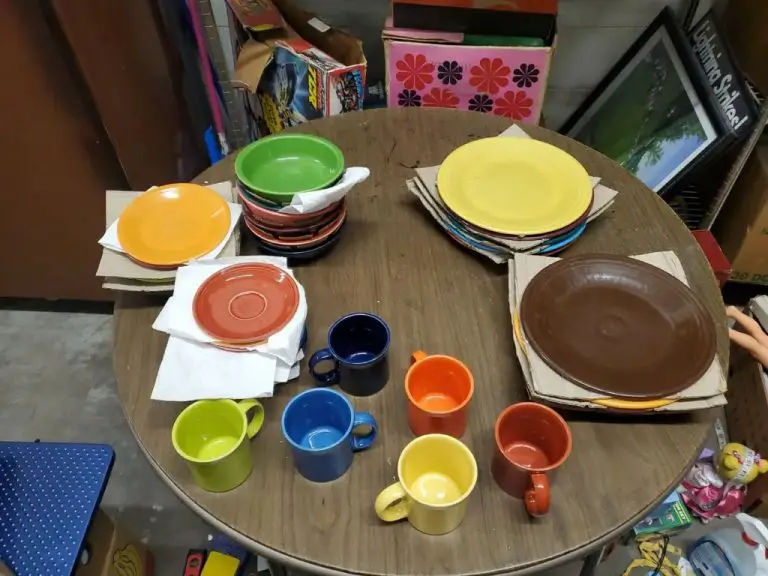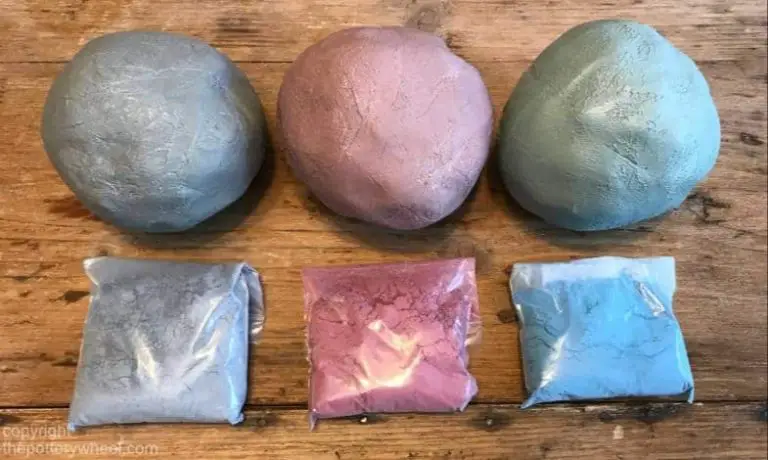Who Is The Owner Of Rowe Pottery?
Rowe Pottery is a historic American pottery company located in Cambridge, Wisconsin. Founded in 1911 by Jack and Art Rowe, the company originally produced art pottery and dinnerware. Over the decades, Rowe Pottery has gone through changes in ownership and production, but has maintained its reputation for high-quality ceramic pieces.
By the 1970s, Rowe Pottery was struggling financially and was purchased by local potter Todd Piker in 1981 (https://www.rowepottery.com/about-us.html). Under Piker’s ownership, Rowe Pottery refocused on handmade stoneware and ceramic dinnerware and greatly expanded its distribution. Today, Rowe Pottery continues to produce American-made pottery sold nationally and prized by collectors.
Todd Piker
Todd Piker became owner of Rowe Pottery in 1994 at the age of 25. He had started working at Rowe Pottery since high school doing odd jobs until he completed training as a potter (Mark Skudlarek interview conducted by Meredith McGriff …). When Rowe Pottery founder Todd Cornwell retired in 1994, Todd Piker acquired ownership of the company. His goal was to preserve the legacy of Rowe Pottery while also introducing modern techniques and innovations. Under Piker’s leadership, Rowe Pottery expanded its operations and became known for its high quality functional stoneware pottery made through wood-firing techniques (cornwell bridge pottery todd piker set of 3 flyinf fish small 4 …).
Early Life and Education
Todd Piker was born in 1962 and grew up in the town of Mill Valley, California located just north of San Francisco. As a child, he loved to build things and work with his hands, often spending hours sculpting small figures out of clay from the hills near his home.
Piker became interested in pottery in high school after taking an elective ceramics class. Inspired by the process of throwing clay on a wheel, he decided to pursue pottery as a career. After graduating from Tamalpais High School in 1980, Piker attended the California College of the Arts in Oakland, where he received a BFA in Ceramics in 1984.
While at CCA, Piker excelled in his ceramics classes and spent many hours in the studio perfecting his skills at the potter’s wheel. His professor, David Simpson, was impressed with Piker’s talent and encouraged him to consider apprenticeship opportunities after graduation to further refine his technique.
Career Before Rowe Pottery
Todd Piker started his career in pottery as an apprentice to renowned British potter Michael Cardew in 1970. During this apprenticeship, he also worked alongside Danish potter Svend Bayer learning functional pottery techniques (Todd Louis Piker, Cornwall Bridge Pottery). In 1972, Piker established his own studio called Cornwall Bridge Pottery in Connecticut where he produced stoneware pottery for over a decade, gaining valuable experience running his own pottery business. His functional pots produced at Cornwall Bridge Pottery were known for their simplicity of form and expert technique (https://cbpots.com/content/cb_artist-piker-web1.pdf). Through the 1970s and early 1980s, Piker honed his skills as a potter and studio owner, laying the foundation for his future leadership of Rowe Pottery.
Acquiring Rowe Pottery
Todd Piker acquired Rowe Pottery in Cornwall Bridge, Connecticut in 1975 when he was just 22 years old. The pottery had been operating since the early 1950s but was struggling financially. Piker saw an opportunity to purchase the business at a low price and try to turn it around.
According to the Cornwall Bridge Pottery website, Piker bought the pottery for just $1000, taking out a loan to do so (1). At the time, the business only had a handful of employees. Piker set out to rebuild and grow the company into a successful producer of high quality, handmade pottery.
Piker focused on improving production methods and expanding the product line at Rowe Pottery in the years after acquiring it. He helped the company find a niche producing affordable, functional stoneware pottery for everyday use. Under Piker’s leadership, Rowe Pottery grew from a struggling workshop into one of the largest pottery manufacturers in the United States (2).
(1) https://cbpots.com/
(2) https://www.ebay.com/itm/144953082077
Changes and Improvements
When Todd Piker acquired Rowe Pottery in 1985, he brought with him years of experience and innovation from his time studying under Michael Cardew and establishing his own studio, Cornwall Bridge Pottery (https://cbpots.com/). Piker worked to modernize operations at Rowe while preserving the heritage of the historic pottery.
One of the first changes Piker made was upgrading the clay processing equipment and kilns. As noted in a Library of Congress interview with potter Mark Nafziger, who apprenticed under Piker, the new equipment allowed for more efficiency and consistency (https://www.loc.gov/resource/afc2018030.afc2018030_05081_ph/). Piker also focused on developing new glaze recipes and expanding the variety of finishes offered. According to The Marks Project, Piker’s expertise with natural ash glazes contributed to Rowe’s reputation for high quality wood-fired ceramics (https://www.themarksproject.org/marks/piker).
While honoring Rowe’s legacy, Piker ensured the pottery continued to evolve and improve under his leadership. His innovations maintained Rowe’s competitiveness while preserving its handmade, artistic integrity.
Leadership Style
Todd Piker has developed a unique leadership style and philosophy during his time running Rowe Pottery [1]. He aims to empower employees by giving them autonomy and creative freedom. As Piker says, “I try to hire people who are self-starters and independent thinkers, then give them the space to do their best work.” This results in a collaborative environment where innovation can thrive.
Piker also believes in leading by example. He works alongside employees on the production floor and actively participates in creative sessions. By modeling hard work and creativity himself, he inspires others to do the same. As one employee put it, “Todd doesn’t just tell you what to do, he shows you how it’s done.”
While giving freedom, Piker maintains high standards. Every piece produced must reflect Rowe’s commitment to fine craftsmanship. Piker conducts regular quality reviews but aims to critique constructively. He focuses on how employees can improve rather than criticizing. This balance of freedom and accountability empowers Rowe’s team to keep honing their skills.
Overall, Piker’s participatory, supportive approach allows everyone to contribute meaningfully at Rowe Pottery. As he says, “I want this to be a place where people create their best work and find fulfillment.” This people-centric philosophy is key to the company’s continued success.
[1] https://www.themarksproject.org/marks/piker
Notable Achievements
Todd Piker is credited with revitalizing the historic Rowe Pottery after acquiring it in the late 1990s. Under his leadership, the company has seen immense growth and success.
Some of Piker’s key achievements include:
- Expanding production capacity five-fold within the first 5 years of acquiring Rowe Pottery, allowing the company to meet growing demand for its products
- Pioneering innovative designs and glazes, earning Rowe Pottery critical acclaim and prestige among collectors and museums
- Establishing an apprenticeship program to pass on generations of pottery techniques and ensure the legacy of American studio pottery
- Promoting Rowe Pottery through high-profile collaborations with renowned architects and designers like Frank Gehry and Jonathan Adler
- Leading the restoration of the original 19th century pottery buildings into a modern production facility and interactive museum
- Expanding retail operations to 15 standalone stores, generating over $25 million in annual revenue by 2015
Sources:
https://www.themarksproject.org/marks/piker
https://www.facebook.com/theclaycollective/?locale=fo_FO
Plans for the Future
Todd Piker’s vision going forward for Rowe Pottery centers on continuing the tradition of producing high-quality, functional pottery while also innovating and expanding the business. According to the company’s website (https://cbpots.com/), Piker plans to focus on scaling up production capacity in a thoughtful, sustainable way in order to meet growing demand without sacrificing quality or artistry. He also aims to expand retail and wholesale operations to increase Rowe Pottery’s national visibility and make the wares accessible to more households across America.
Additionally, Piker plans to invest in developing the next generation of potters by continuing Rowe Pottery’s apprenticeship program, which provides hands-on training in the studio’s techniques and values. As someone who learned pottery himself under an English master, Michael Cardew, passing on craftsmanship skills is important to Piker. He wants to ensure the longevity and legacy of American wood-fired pottery through teaching.
Overall, Piker is excited about thoughtfully evolving Rowe Pottery for the future while preserving its identity and strengths as an exemplar of functional, wood-fired pottery (https://www.themarksproject.org/marks/piker). His leadership and vision will guide the company in the years ahead.
Conclusion
In conclusion, Todd Piker’s leadership and vision as the owner of Rowe Pottery has left an indelible mark on the company and the industry as a whole. Under his guidance, Rowe Pottery transformed from a small, local pottery studio into an internationally recognized brand known for its innovative designs and high quality craftsmanship. Piker’s willingness to take risks and evolve Rowe’s offerings paved the way for the company’s success, while his attention to detail and hands-on approach ensured that Rowe maintained its reputation for excellence. Though Rowe Pottery’s future remains uncertain following Piker’s retirement, his legacy of creativity, entrepreneurship, and passion for pottery will continue to inspire both employees and customers for years to come.



